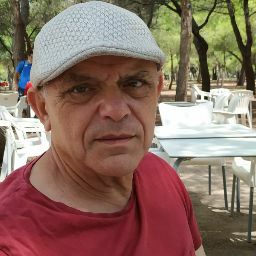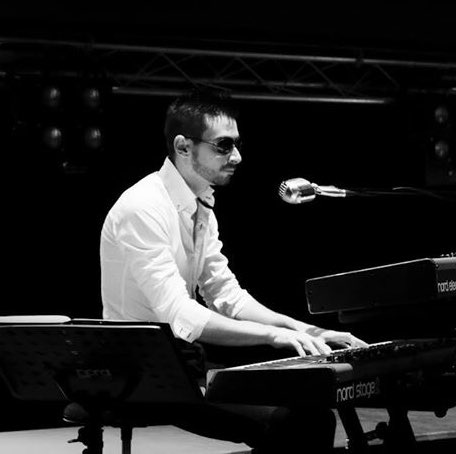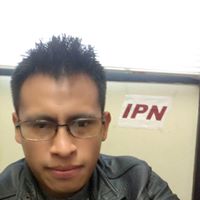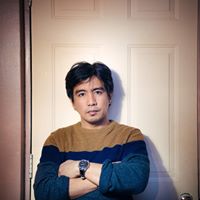Juan Pedro Pascual
age ~58
from South El Monte, CA
- Also known as:
-
- Juan P Pascual
- Juan P Hernandez
- Juan P Pascuale
- Pedro Pascual
- Juan Phernandez
- Phone and address:
-
4347 La Madera Ave, El Monte, CA 91732
(626)4544313
Juan Pascual Phones & Addresses
- 4347 La Madera Ave, El Monte, CA 91732 • (626)4544313
- South El Monte, CA
- N Las Vegas, NV
- Elk, CA
- Los Angeles, CA
- Ontario, CA
- 4347 La Madera Ave, El Monte, CA 91732 • (626)2227862
Work
-
Position:Craftsman/Blue Collar
Education
-
Degree:Associate degree or higher
Emails
Isbn (Books And Publications)

IX Seminario De Estudios Sobre La Fe Publica Mercantil
view sourceAuthor
Juan Piquer Pascual
ISBN #
8481551384
License Records
Juan Pascual
Phone:
(239)8785772
License #:
62525 - Active
Category:
Health Care
Issued Date:
Sep 18, 2015
Effective Date:
Dec 23, 2016
Expiration Date:
Dec 31, 2018
Type:
Registered Pharmacy Technician
Name / Title
Company / Classification
Phones & Addresses
President
Iglesia Cristiana "Dios Es Amor" Ahua Ra Mathe
5800 W Lk Mead Blvd, Las Vegas, NV 89108
6000 Bromley Ave, Las Vegas, NV 89107
6000 Bromley Ave, Las Vegas, NV 89107
Medicine Doctors

Juan M. Pascual
view sourceSpecialties:
Child Neurology
Work:
Childrens Health Specialty Center
2350 N Stemmons Fwy STE F5400, Dallas, TX 75207
(214)4562768 (phone), (214)4566898 (fax)
2350 N Stemmons Fwy STE F5400, Dallas, TX 75207
(214)4562768 (phone), (214)4566898 (fax)
Education:
Medical School
Univ De Granada, Fac De Med, Granada, Spain
Graduated: 1990
Univ De Granada, Fac De Med, Granada, Spain
Graduated: 1990
Conditions:
Epilepsy
Infectious Diseases of the Brain or Spinal Cord
Ischemic Stroke
Meningitis
Migraine Headache
Infectious Diseases of the Brain or Spinal Cord
Ischemic Stroke
Meningitis
Migraine Headache
Languages:
English
Spanish
Spanish
Description:
Dr. Pascual graduated from the Univ De Granada, Fac De Med, Granada, Spain in 1990. He works in Dallas, TX and specializes in Child Neurology. Dr. Pascual is affiliated with Childrens Health and William P Clements University Hospital.
Resumes

Juan Pascual Perris, CA
view sourceWork:
Soboba Tribal Gaming Commission
Jan 2014 to 2000
Surveillance Agent Los Angeles Dodgers
Mar 2013 to 2000
Security Assistant Manager AEG Facilities, Los Angeles Convention Center
Los Angeles, CA
Dec 2013 to Jan 2014
Security Supervisor AEG Stubhub Center
Aug 2012 to Mar 2013
Security Supervisor American Corporate Security, Inc
Jun 2010 to Jun 2012
Security Officer Liberty Protection and Investigation Services
Apr 2010 to Jun 2010
Security Officer Active Duty, U.S. Marine Corps
May 2007 to Mar 2010
Marine Security Guard Active Duty, U.S. Marine Corps
Okinawa, Japan
May 2005 to Mar 2007
Second Stage Audits Clerk
Jan 2014 to 2000
Surveillance Agent Los Angeles Dodgers
Mar 2013 to 2000
Security Assistant Manager AEG Facilities, Los Angeles Convention Center
Los Angeles, CA
Dec 2013 to Jan 2014
Security Supervisor AEG Stubhub Center
Aug 2012 to Mar 2013
Security Supervisor American Corporate Security, Inc
Jun 2010 to Jun 2012
Security Officer Liberty Protection and Investigation Services
Apr 2010 to Jun 2010
Security Officer Active Duty, U.S. Marine Corps
May 2007 to Mar 2010
Marine Security Guard Active Duty, U.S. Marine Corps
Okinawa, Japan
May 2005 to Mar 2007
Second Stage Audits Clerk
Education:
University of California, Riverside Extension
Riverside, CA
2013 to 2014
Certificate in Project Management University of California, Riverside Extension
Riverside, CA
2013 to 2013
Certificate in Human Resource Management Argosy University Inland Empire
Ontario, CA
Bachelor of Arts in Psychology Juan Rodriguez Cabrillo High School
Long Beach, CA
High School Diploma
Riverside, CA
2013 to 2014
Certificate in Project Management University of California, Riverside Extension
Riverside, CA
2013 to 2013
Certificate in Human Resource Management Argosy University Inland Empire
Ontario, CA
Bachelor of Arts in Psychology Juan Rodriguez Cabrillo High School
Long Beach, CA
High School Diploma
Skills:
Proficient in MS Word, Excel, Powerpoint, and Outlook; Typing speed at 50wpm
Myspace
Googleplus

Juan Pascual
Work:
Pepe Jeans - IT Technical (2012)
Education:
IES Nicolau Copernic - CFGM Microinformatica

Juan Pascual
Work:
Mister universo
Education:
University of Oxford - Todas

Juan Pascual
Education:
Escuela de Artes y Oficios - Metalistería Artística., Bachillerato - Bachillerato
About:
Taller de Orfebrería y Fundición. Metalistería Artistíca. Microfusión y Baja Fusión.
Bragging Rights:
Trabajamos con todas las técnicas y herramientas de la Orfebrería tradicional,apoyados por maquinarías de útima generación.

Juan Pascual

Juan Pascual

Juan Pascual

Juan Pascual

Juan Pascual
Flickr
Plaxo

Juan Luis Pascual Sánchez
view sourceMadrid, España

Juan Pablo Pascual
view sourceEl Clavel del Aire, Las Condes
Classmates

Juan Ramos Pascual
view sourceSchools:
Glen Alta Elementary School Los Angeles CA 1996-2000
Community:
Debra Sanchez, Anna Adauto, Sonya Russo, Albert Jimmy
Youtube

Juan Carlos Pascual
view source
Jing Juan Pascual
view source
Juan Miguel Pascual
view source
Juan Benito Pascual
view source
Juan Baloran Pascual
view source
Juan Carlos Pascual
view source
Juan Miguel Pascual
view source
Juan Pascual
view sourceNews

The Ancient Back Story of the Slimiest Animal in the Sea
view source- process of being captured by scientists late at night on boats in the black ocean a bit stressful. Juan Pascual-Anaya, a biologist at the University of Mlaga in Spain who has spent summers collecting hagfish off the coast of Japan, recalls having to strip the elastic gel off the animals with his hands.
- Date: Jan 16, 2024
- Category: Science
- Source: Google

New Device Can Keep Brain Alive for Hours Without Body
view source- "This novel method enables research that focuses on the brain independent of the body, allowing us to answer physiological questions in a way that has never been done," said UT Southwestern medical professor and the study's lead investigator Juan Pascual in a statement.
- Date: Nov 17, 2023
- Category: Health
- Source: Google
Get Report for Juan Pedro Pascual from South El Monte, CA, age ~58













